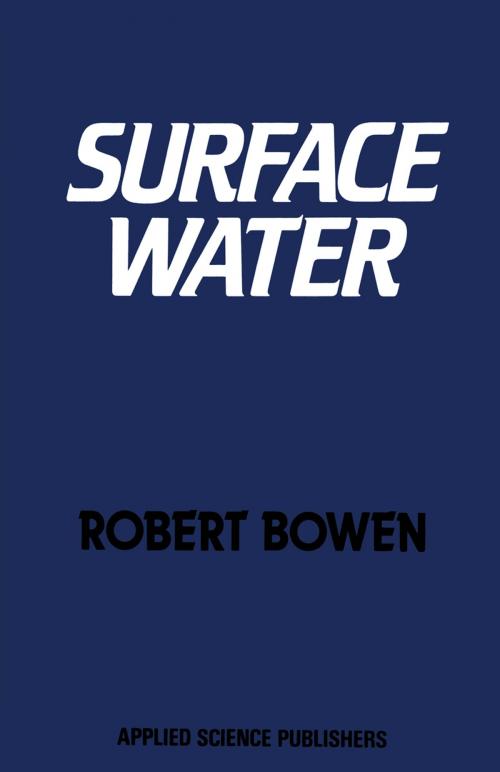Surface Water
Kids, Natural World, Nonfiction, Reference & Language, Education & Teaching, Science & Nature, Science| Author: | Robert. Bowen | ISBN: | 9781461339182 |
| Publisher: | Springer US | Publication: | December 6, 2012 |
| Imprint: | Springer | Language: | English |
| Author: | Robert. Bowen |
| ISBN: | 9781461339182 |
| Publisher: | Springer US |
| Publication: | December 6, 2012 |
| Imprint: | Springer |
| Language: | English |
Next to air, water is the most essential of human requirements. The hydrosphere-the waters of the Earth, its oceans, rivers and lakes-is vital, constituting a feature unique in the solar system and one responsible for physical and climatic phenomena characteristic of the planet. Water moves through the hydrologic cycle and runs the heat engine of the Earth, approximately 97% of it occurring in the oceans. These contain vast natural resources including abundant plant and animal life and they assist in cleansing the atmosphere by becoming the final repository of air and land pollutants of which many are man-made. Unfortunately their ability to do this is diminishing because of rising pollution by toxicants such as DDT, nuclear by-products such as strontium-90 and oil spills. The oceans contain huge quantities of various substances mostly originating from the atmosphere, biological activity, river transport after rock weathering, groundwater, spreading zones along mid-oceanic ridges and crustal out-gassing. After hydrogen and oxygen, the commonest elements in them are Cl, Na, Mg, S, K, Ca, Br, C and B. The atmosphere and the oceans together cooperate in an energy cycle important in controlling and equalising the Earth's surface temperature.
Next to air, water is the most essential of human requirements. The hydrosphere-the waters of the Earth, its oceans, rivers and lakes-is vital, constituting a feature unique in the solar system and one responsible for physical and climatic phenomena characteristic of the planet. Water moves through the hydrologic cycle and runs the heat engine of the Earth, approximately 97% of it occurring in the oceans. These contain vast natural resources including abundant plant and animal life and they assist in cleansing the atmosphere by becoming the final repository of air and land pollutants of which many are man-made. Unfortunately their ability to do this is diminishing because of rising pollution by toxicants such as DDT, nuclear by-products such as strontium-90 and oil spills. The oceans contain huge quantities of various substances mostly originating from the atmosphere, biological activity, river transport after rock weathering, groundwater, spreading zones along mid-oceanic ridges and crustal out-gassing. After hydrogen and oxygen, the commonest elements in them are Cl, Na, Mg, S, K, Ca, Br, C and B. The atmosphere and the oceans together cooperate in an energy cycle important in controlling and equalising the Earth's surface temperature.















